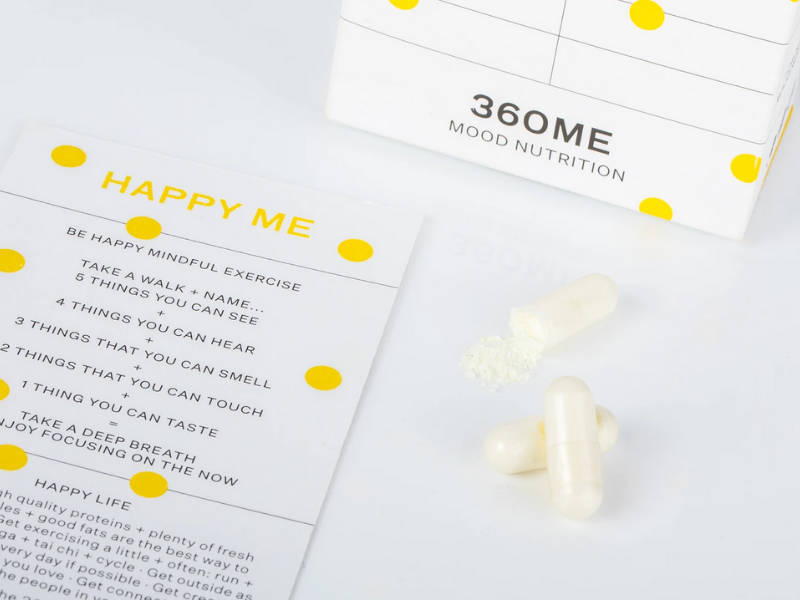
How Do You Get Your Mood Mojo Back? 7 Things You Can Do Right Now
Many of us are feeling anxious, low or suffering from tiredness and we could all do with an energy boost and a few strategies to banish brain fog and to help get our mood mojo back.
Does that sound like a plan?
So I thought I would share some tips I’ve learned from my decades of professional experience and from my own story of how I’ve biohacked my way back to health.
We all struggle along doing our best to juggle everything. Trying to take care of our mental and physical health, feeling the weight of burnout, as well as physical signs of stress like gut problems, muscle tension, headaches.. the works! Boundaries are so vital for self-care and have never been more important.
You might have experienced the fight or flight feeling when you are stressed? Like when you have an argument with your partner. Or get triggered by something at work.
The quicker you can self-regulate (self soothing is a big part of this) and get back to a place of calm, the healthier you will feel.
But this is something we learned (or didn’t learn as children) and if we’re not equipped with the tools to self-soothe we will often reach for booze or food, Netflix binging, Instagram, PlayStation or whatever other way distracts you from the discomfort of this state. The good news is we can teach ourselves how to come back down...
Once your body feels that the threat is over, your cortisol and adrenaline levels lower, helping to relax you, lift your mood and reduce feelings of stress and anxiety.

Activate Your Vagus Nerve
So the key is learning to talk yourself down from stress, to reframe the threat, and to get safe. Through activating your vagus nerve you can help yourself to be more in control of your mind, your body and its reactions to stress. Something we could all do with right now!
So I thought I would share the key things that have helped the people I talk with to cope just in case any of these can help you too:
1 Mindset
First things first: Make the decision that your number one priority is your wellbeing.
Choose yourself.
Then all your life choices and decisions follow on, naturally, from that.
Then take the next best step for you.
The first thing that helped me was a shift in thinking. Rather than fighting my lack of energy and feeling frustrated, low and fed up I decided to lean in to it. If I need to rest, then I need to rest. There is no point using up energy feeling negative about this. Let it go.
2 Body Scanning
This is a way to tune into what your body and mind needs. First thing each morning, and then regularly through the day, take a quiet moment to close your eyes, take a deep breath and check-in with how your body is feeling.
Rather than push through the day, ignoring the sensations and feelings that your body is trying to communicate, try to pause and listen. Only then can you make a good decision from the perspective of your wellbeing.
Ask yourself “What would help me right now?” And then do it.

3 Permission
It’s the Doing It that is difficult sometimes. Especially for people used to being busy, juggling businesses and children, ‘resting’ is often interrupted by feelings of laziness, guilt, shame, responsibility, the need to take care of others or to answer an email.
So if your body scan comes back as: “I’m tired. My brain feels foggy. My eyes ache”.
The answer is “Rest”.
Then the Doing is made so much easier if you have given yourself permission.
I use the Phone Recharge Analogy.
What percentage are you on today?
What helps your recharge and what drains your energy?
The way this works for me is that if I decide to recharge my battery today I won’t feel so flat tomorrow. There’s no point running myself down to 0% only for it to take days to recharge. Much better to notice when I’m down to 50% and plug in. The key is not to then unplug until you are back up to 100%!

4 Meditation
One of the best ways people have found to plug in, along side audiobooks and podcasts (with eyes shut, softly keeping you company) and to recharge is to do Guided Meditations.
I find the most powerfully effective ones are Colour Meditations. I was taught one when I was studying NLP (Neuro-linguist programming) but when I’m struggling for energy I like to hand over the meditation to somebody else and be guided.
I have some favourites on YouTube that I have in a folder but I really encourage you to find the ones that work for you. I have found them life changing. My body seems to switch its holding pattern of “stress and protect” into one of “release and relax”. The relaxation response is crucial for recovery - it frees all your energy to be focused on repair.
Focus on your breath by practicing Square Breathing (on your boxcards in your supplements) which is all about taking and holding deep breaths right down into your diaphragm - place your hand on your stomach to feel it.
Square Breathing
This can be done wherever you like - while at your desk, when you boil the kettle, at a red light or pacing as you walk, run or climb steps.
5 Yoga
By Yoga I mean giving myself permission to gently move your body and hold long, slow poses that feel restorative, flooding your body with chi. The beautiful benefits of releasing tension and energy blocks in your body is like a physical and mental reboot.
I have followed some instructors but more often now move into whatever poses I’m drawn to instinctively. Sometimes it’s just Child’s Pose for 15 minutes. Sometimes it’s realigning and stretching in Tree Pose.
Simple, unchallenging poses to connect mind and body on your mat, maybe listening to the sounds of birds or waves on a beach can really help your brain to recharge.
No Wounded Peacock or Handstand Scorpions needed!

6 Get moving + Get into nature:
Exercise actually changes how our brains function so the most important thing is to find something that you love to do and do it every day.
Can you take an hour of exercise outside into your life longterm? Even if you can only find time for half an hour that still has enormous benefits for your mental and physical wellbeing.
Forest bathing (or Shinrin Yoku) and the natural phytoncides emitted by trees help to calm us down. Use your daily exercise hour to get outside if you can and head for a green space. Ground yourself and sit under a tree, have your coffee outside, how many different birds can you hear? Surround yourself with the colour green.
Take a moment to try this exercise:
7 Nutrients: Eating well + Supplements + Biohacking
I think it’s difficult to think proactively when we are in a low physical or mental state and sometimes we need to get a little better to have the spare capacity to think and problem solve.
For me, the wonderful power of biohacking - being able to work out what nutrients would support my body to help me recover - helps me feel that I have some control back and that I can take some action to take care of myself.
Linking nutrition to mental health is a new + developing field in Psychology. Traditionally we think of eating well to keep our bodies healthy but we seem to have missed the link of eating well to keep our brains functioning well.
A huge body of evidence now exists that finds that diet is as important to mental health as it is to physical health.
“A healthy diet is protective and an unhealthy diet is a risk factor for depression and anxiety,” says Felice Jacka, President of the International Society for Nutritional Psychiatry Research.
“Diet is potentially the most powerful intervention we have. By helping people shape their diets, we can improve their mental health” (Dr Drew Ramsey).”No matter where you are on the spectrum of mental health, food is an essential part of your treatment plan,” Ramsey says. “ If you are on medications they are going to work better if you are eating a brain-healthy diet of nutrient-dense foods”.
Good nutrition is crucial for brain health then. Real food nourishes our brains + becomes the protein + enzymes + tissue + neurotransmitters that transfers + processes information controlling every function of our bodies + every feeling we have.
So, we have incredible power + control over our mental health using foods + nutrients. I know from my own experience though how hard it is to always hit every nutritional goal when life gets busy or emotions are overwhelming. Of course the ideal is to eat an amazing diet but skip a few meals because we are tired or wired + grab a quick take away when anything will do is sometimes the reality.
That’s why I wanted to design a multivitamin that would fill all the gaps. Be the insurance to make sure you can get all the nutrients you need whatever is going on in your life.
So to start with focus on giving your body all the immune boosters, anti-inflammatories and mood enhancers by taking Mood Me with all its powerful ingredients to support your brain.
Probiotics, Vitamins C + D, and Zinc have all been linked to prevention and recovery from Covid-19 which made me so happy when I knew that all of these ingredients were in their most bioavailable form in M+E supplements.
Then it was brain energy to try to get through the day without the afternoon slumps with Energy Me.
Energy Me was a complete game-changer for tiredness.
Then Calm Me for the Magnesium and Glutamine to help you reduce the worry, shock and adrenaline in my body to fight off disease and stress. Just like a tiger threatens your life and we release adrenaline in response, so disease triggers the same response.
And Happy Me for the DLPA and Tryptophan to ease the low, flat feelings that you can experience at times too. To help you build some emotional energy, to help you sleep and to refuel your hypothalamus - your brain's master gland.
I hope these tips give you some ideas and go some way to help with your recovery - mental or physical - whatever you are struggling with.
It’s pretty amazing how nutrients can help isn’t it?
We all tend to eat the same sorts of foods each week which means that over time we start to miss some crucial nutrients.
It means that we end up with deficiencies and gaps without even realising it. This has a huge impact on how our bodies and brains work. We adjust and just think that it is our normal. It’s just what we have to put up with.
But this isn’t the case. You can make a change.
That’s where a high quality supplement can help fix the deficiencies and fill the gaps.
Your health and your life feels transformed.
You have abundant energy and joy comes back into your life.
Take care
Evelyn



1 comment
Love this Mojo article… so helpful… as mine has well and truly done a bunk. The tips and advice really help support my daily routine of working from home. I particularly like the square breathing and taking those few precious moments to really stop and focus on nothing else but what I’m inhaling and exhaling. I’m hoping ‘Happy Me’ also helps. Thanks Evelyn. 👍🏻
Sara
Leave a comment
This site is protected by hCaptcha and the hCaptcha Privacy Policy and Terms of Service apply.